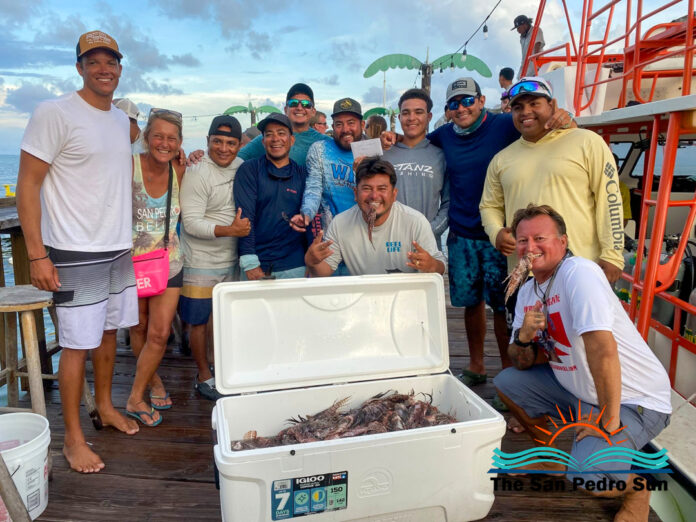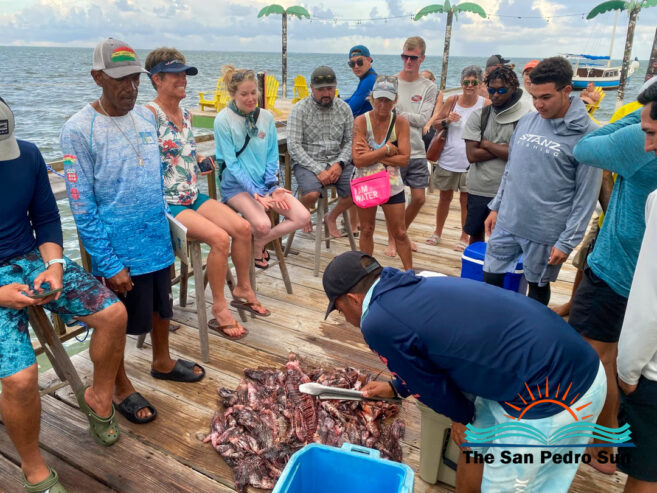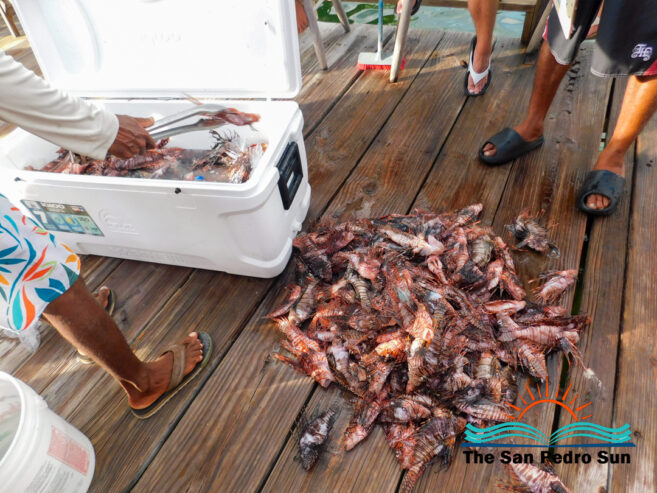Team Chingon emerged as the champion of the fifth annual Reef Adventures Lionfish Tournament after capturing an impressive 608 lionfish. The team also won the prize for the smallest lionfish. In second place was Team Elite Divers with 532 lionfish, earning the award for the largest specimen. Team Carma placed third with 523 lionfish.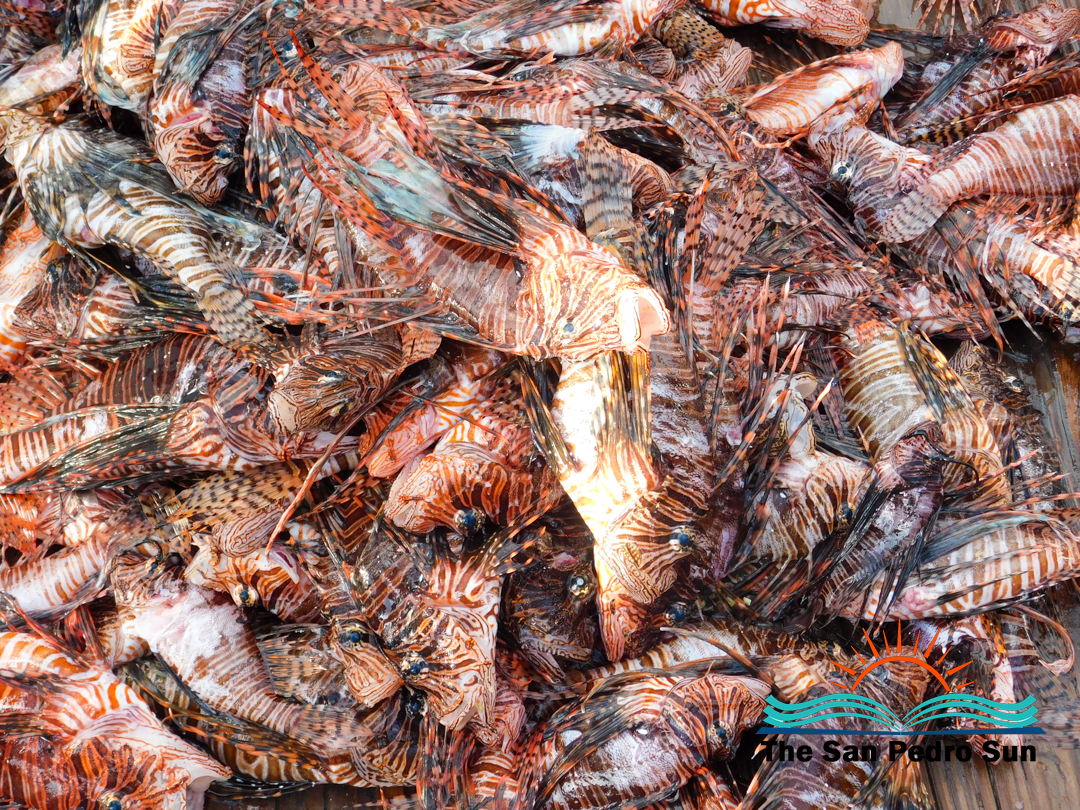
The tournament, held on October 4th in San Pedro Town, Ambergris Caye, featured several participating teams. Competitors set out as early as 4:30AM, covering dive areas as far as St. George’s Caye near Belize City. After a full day at sea, the teams returned by 4PM to the Palapa Bar dock, where coolers filled with lionfish were weighed and counted. Teams Carma, Elite Divers, Chingon, and La Chamba noted that the invasive species continues to spread in local waters.
During the count, the lionfish varied in size from small juveniles to large adults. At the end of the tally, Team Chingon secured first place, followed by Team Elite Divers in second and Team Carma, the reigning champions for the past three years, in third. Team La Chamba placed fourth with 202 lionfish. In total, all teams removed 1,865 lionfish from the waters of Belize.
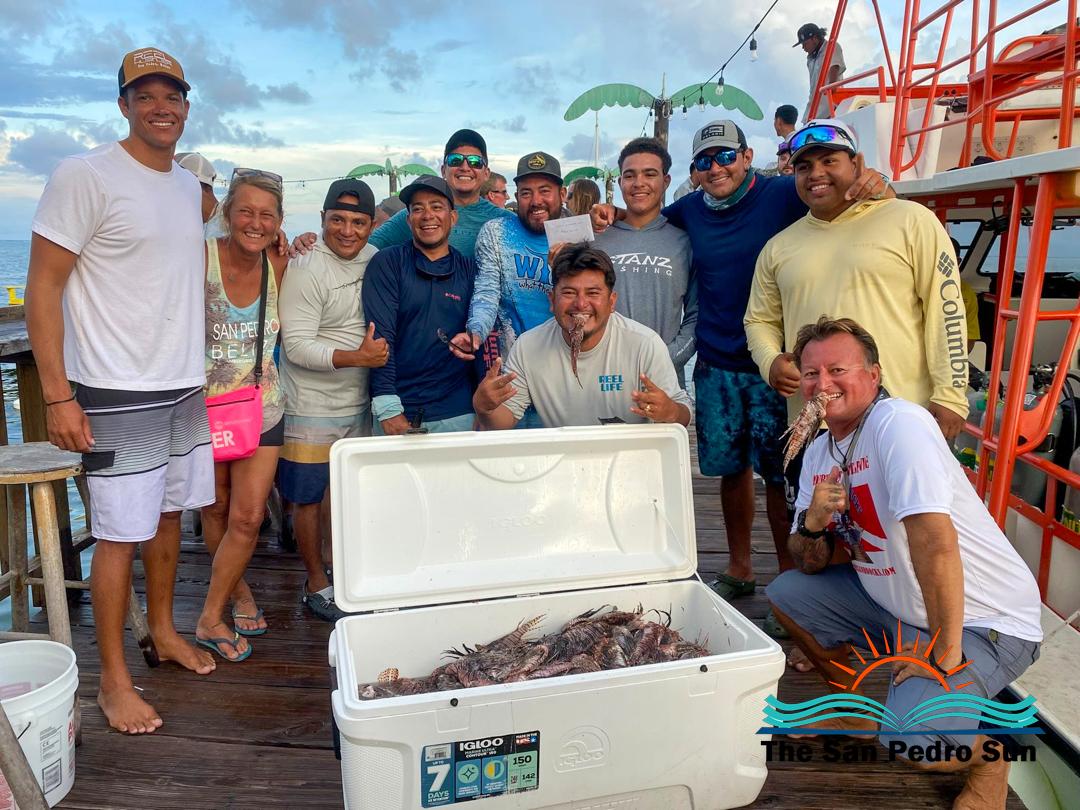
The annual tournament aims to raise awareness about the invasive lionfish species, which poses a serious threat to Belize’s marine ecosystem. Organizer Ched Cabral explained that the first tournament in 2021 began with the help of a frequent visitor to the island, who donated $1,000 as the grand prize, which Team Chingon won. Team Carma won the following three tournaments, and support from visiting divers and volunteers has continued to grow.

“In 2024, we managed to raise $10,000 for cash prizes,” Cabral said. “This year, the total came to $8,000. The tournament has been funded by kind visitors and divers who dive with us at Reef Adventures. This is the way they give back to our island community and show their love for conservation.” Cabral added that he looks forward to organizing the next tournament in 2026.
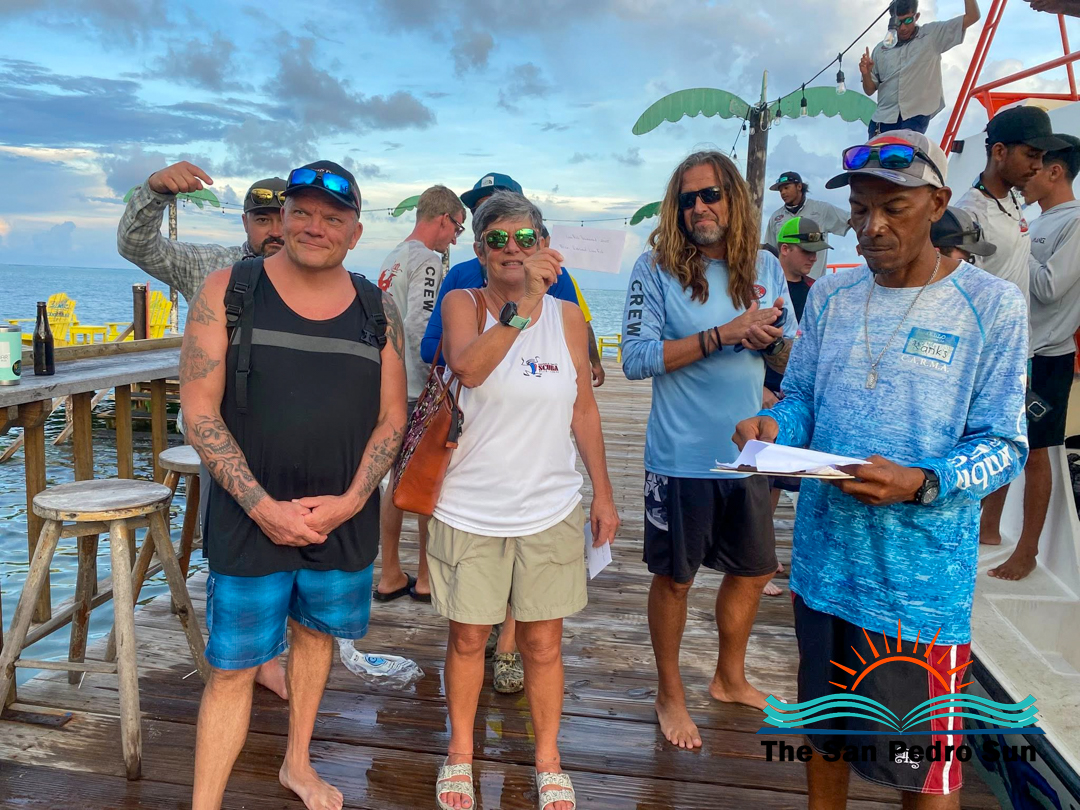
Lionfish are native to coral reefs in the tropical waters of the South Pacific and Indian Oceans. The first reported sighting of lionfish in the Atlantic was off the Florida coast in the USA in 1985, believed to have resulted from the release of aquarium specimens. Since then, lionfish have spread throughout the Caribbean and Gulf of Mexico, posing a significant threat to marine ecosystems and coastal fisheries. Experts note that the species spawns almost every month and feeds voraciously on juvenile fish, disrupting the balance of reef habitats.

Because of this growing threat, initiatives such as culling tournaments are strongly encouraged. Some San Pedro restaurants also feature lionfish dishes on their menus, promoting consumption as a sustainable way to combat the species’ spread and protect Belize’s marine life.

